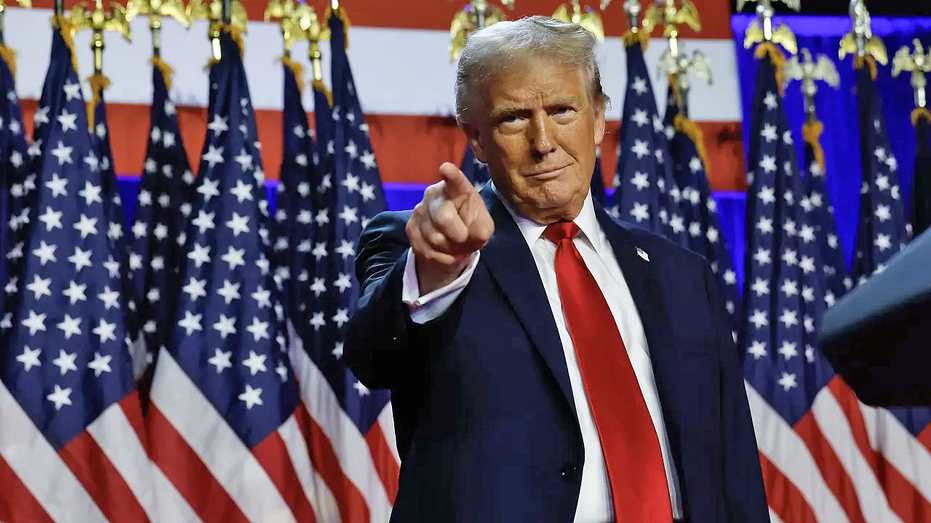Months ago, President-elect Trump vaguely suggested that those who “like TikTok” should vote for him, raising the hopes for users of the video-sharing app that he might thwart a ban that is soon to take effect.
“We’re not doing anything with TikTok, but the other side is going to close it up, so if you like TikTok, go out and vote for Trump,” Trump said in a September post on his Truth Social service.
He didn’t make any specific promises to reverse the impending ban, but his team says he will “deliver.”
“The American people re-elected President Trump by a resounding margin, giving him a mandate to implement the promises he made on the campaign trail,” Karoline Leavitt, a spokeswoman for Trump and Vice President-elect JD Vance’s transition team, said in a statement.
Working to reverse a ban, which should take effect in January, passed by Congress and signed into law by President Biden, would be a 180-degree reversal from 2020, when Trump tried to block the app in the U.S. or force its sale.
MIKE ROGERS IN CONSIDERATION FOR FBI CHIEF
Then, in April of this year, Biden signed a similar measure that gave TikTok’s parent company, ByteDance, until Jan. 19, 2025 — the day before the inauguration — to sell it or face a U.S. ban.
“He appreciates the breadth and reach of TikTok, which he used masterfully along with podcasts and new media entrants to win,” Kellyanne Conway, an adviser close to Trump who now advocates for TikTok, told The Washington Post.
“There are many ways to hold China to account outside alienating 180 million U.S. users each month. Trump recognized early on that Democrats are the party of bans — gas-powered cars, menthol cigarettes, vapes, plastic straws and TikTok — and to let them own that draconian, anti-personal-choice space.”
The Trump White House could pressure the Republican-led Congress to reverse the TikTok ban. Or, the Justice Department could pursue a policy of loose enforcement of the law.
TRUMP TURNS TO ALLIES AND LOYALISTS TO IMPLEMENT HIS AMERICA FIRST AGENDA
TikTok is currently fighting in court to undo the law, arguing that it is unconstitutional.
The law also allows the president to extend the divestment deadline by 90 days if the administration sees “significant progress” toward a sale.
The law is enforced by ordering app stores like Apple and Google to stop offering TikTok on their platforms, or be subjected to a fine.
When it comes to Big Tech, Trump has focused much of his ire on TikTok’s rival, Meta, formerly Facebook. In a March interview with CNBC, Trump said the owner of Facebook and Instagram poses a far bigger threat, labeling Meta an “enemy of the people.”
“Facebook has been very bad for our country, especially when it comes to elections,” he said.
But since then, Meta’s CEO, Mark Zuckerberg, has given a number of glowing statements about Trump.
“Congratulations to President Trump on a decisive victory. We have great opportunities ahead of us as a country. Looking forward to working with you and your administration,” the tech mogul said after Trump’s win.
Trump himself has more than 14 million followers on TikTok. “For all of those who want to save TikTok in America, vote for Trump. The other side is closing it up, but I’m now a big star on TikTok,” he declared in September.
But back on Capitol Hill, the national security threat of TikTok is a top concern for lawmakers of both parties — 197 Republicans and 155 Democrats voted for the bill to force ByteDance to divest. They fear that the Chinese parent company could be harnessing data on U.S. citizens and manipulating the content that users see to be against U.S. interests, charges that TikTok denies.
But Trump’s Cabinet picks are largely China hawks who have supported the ban. His appointed national security adviser, Rep. Michael Waltz, R-Fla., voted for it. His choice for secretary of state, Sen. Marco Rubio, R-Fla., said that TikTok gives the Chinese government “a unique ability to monitor” U.S. teens and that “we must ban this potential spyware before it is too late.”
Trump’s nominee for secretary of homeland security, South Dakota Gov. Kristi Noem, was the first governor to ban TikTok on government devices.
Public support for a TikTok ban has tanked in the U.S., with only 32% of Americans backing one, a Pew Research poll found in September.
